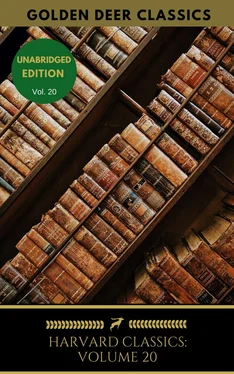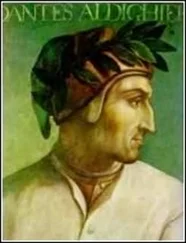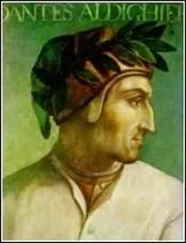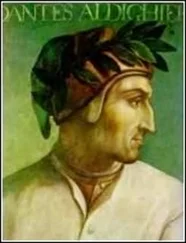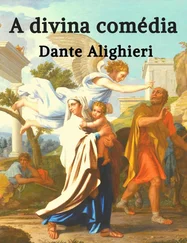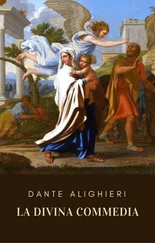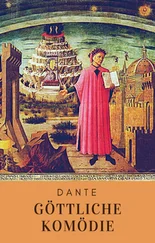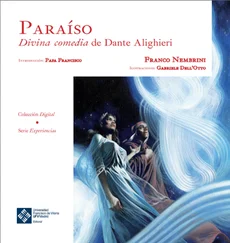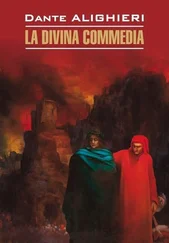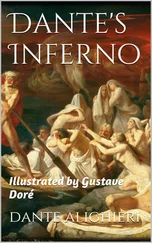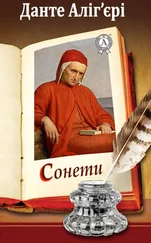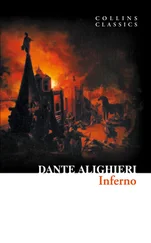Array Dante Alighieri - Harvard Classics Volume 20
Здесь есть возможность читать онлайн «Array Dante Alighieri - Harvard Classics Volume 20» — ознакомительный отрывок электронной книги совершенно бесплатно, а после прочтения отрывка купить полную версию. В некоторых случаях можно слушать аудио, скачать через торрент в формате fb2 и присутствует краткое содержание. Жанр: unrecognised, на английском языке. Описание произведения, (предисловие) а так же отзывы посетителей доступны на портале библиотеки ЛибКат.
- Название:Harvard Classics Volume 20
- Автор:
- Жанр:
- Год:неизвестен
- ISBN:нет данных
- Рейтинг книги:5 / 5. Голосов: 1
-
Избранное:Добавить в избранное
- Отзывы:
-
Ваша оценка:
- 100
- 1
- 2
- 3
- 4
- 5
Harvard Classics Volume 20: краткое содержание, описание и аннотация
Предлагаем к чтению аннотацию, описание, краткое содержание или предисловие (зависит от того, что написал сам автор книги «Harvard Classics Volume 20»). Если вы не нашли необходимую информацию о книге — напишите в комментариях, мы постараемся отыскать её.
1. The Divine Comedy, by Dante Alighieri
Also available:
The Complete Harvard Classics Collection (51 Volumes + The Harvard Classic Shelf Of Fiction)
50 Masterpieces You Have To Read Before You Die (Golden Deer Classics)
Harvard Classics Volume 20 — читать онлайн ознакомительный отрывок
Ниже представлен текст книги, разбитый по страницам. Система сохранения места последней прочитанной страницы, позволяет с удобством читать онлайн бесплатно книгу «Harvard Classics Volume 20», без необходимости каждый раз заново искать на чём Вы остановились. Поставьте закладку, и сможете в любой момент перейти на страницу, на которой закончили чтение.
Интервал:
Закладка:
This said, he turn’d back o’er the filthy way,
And syllable to us spake none; but wore
The semblance of a man by other care
Beset, and keenly prest, than thought of him
Who in his presence stands. Then we our steps
Toward that territory moved, secure
After the hallow’d words. We, unopposed,
There enter’d; and, my mind eager to learn
What state a fortress like to that might hold,
I, soon as enter’d, throw mine eye around,
And see, on every part, wide-stretching space,
Replete with bitter pain and torment ill.
As where Rhone stagnates on the plains of Arles, [57]
Or as at Pola, [58]near Quarnaro’s gulf,
That closes Italy and laves her bounds,
The place is all thick spread with sepulchres;
So was it here, save what in horror here
Excell’d: for ’midst the graves were scattered flames,
Wherewith intensely all throughout they burn’d,
That iron for no craft there hotter needs.
Their lids all hung suspended; and beneath,
From them forth issued lamentable moans,
Such as the sad and tortured well might raise.
I thus: “Master! say who are these, interr’d
Within these vaults, of whom distinct we hear
The dolorous sighs.” He answer thus return’d:
“The arch-heretics are here, accompanied
By every sect their followers; and much more
Than thou believest, the tombs are freighted: like
With like is buried; and the monuments
Are different in degrees of heat.” This said,
He to the right hand turning, on we pass’d
Betwixt the afflicted and the ramparts high.
Canto X
Argument.—Dante, having obtained permission from his guide, holds discourse with Farinata degli Uberti and Cavalcante Cavalcanti, who lie in their fiery tombs that are yet open, and not to be closed up till after the last judgment. Farinata predicts the Poet’s exile from Florence; and shows him that the condemned have knowledge of future things, but are ignorant of what is at present passing, unless it be revealed by some newcomer from earth.
Now by a secret pathway we proceed,
Between the walls, that hem the region round,
And the tormented souls: my master first,
I close behind his steps. “Virtue supreme!”
I thus began: “Who through these ample orbs
In circuit lead’st me, even as thou will’st;
Speak thou, and satisfy my wish. May those,
Who lie within these sepulchres, be seen?
Already all the lids are raised, and none
O’er them keeps watch.” He thus in answer spake:
“They shall be closed all, what-time they here
From Josaphat [59]return’d shall come, and bring
Their bodies, which above they now have left.
The cemetery on this part obtain,
With Epicurus, all his followers,
Who with the body make the spirit die.
Here therefore satisfaction shall be soon,
Both to the question ask’d, and to the wish [60]
Which thou conceal’st in silence.” I replied:
“I keep not, guide beloved! from thee my heart
Secreted, but to shun vain length of words;
A lesson erewhile taught me by thyself.”
“O Tuscan! thou, who through the city of fire
Alive art passing, so discreet of speech:
Here, please thee, stay awhile. Thy utterance
Declares the place of thy nativity
To be that noble land, with which perchance
I too severely dealt.” Sudden that sound
Forth issued from a vault, whereat, in fear,
I somewhat closer to my leader’s side
Approaching, he thus spake: “What dost thou? Turn:
Lo! Farinata [61]there, who hath himself
Uplifted: from his girdle upwards, all
Exposed, behold him.” On his face was mine
Already fix’d: his breast and forehead there
Erecting, seem’d as in high scorn he held
E’en Hell. Between the sepulchres, to him
My guide thrust me, with fearless hands and prompt;
This warning added: “See thy words be clear.”
He, soon as there I stood at the tomb’s foot,
Eyed me a space; then in disdainful mood
Address’d me: “Say what ancestors were thine.”
I, willing to obey him, straight reveal’d
The whole, nor kept back aught: whence he, his brow
Somewhat uplifting, cried: “Fiercely were they
Adverse to me, my party, and the blood
From whence I sprang: twice, [62]therefore, I abroad
Scatter’d them.” “Though driven out, yet they each time
From all parts,” answer’d I, “return’d; an art
Which yours have shown they are not skill’d to learn.”
Then, peering forth from the unclosed jaw,
Rose from his side a shade, [63]high as the chin,
Leaning, methought, upon its knees upraised.
It look’d around, as eager to explore
If there were other with me; but perceiving
That fond imagination quench’d, with tears
Thus spake: “If thou through this blind prison go’st,
Led by thy lofty genius and profound,
Where is my son? [64]and wherefore not with thee?”
I straight replied: “Not of myself I come;
By him, who there expects me, through this clime
Conducted, whom perchance Guido thy son
Had in contempt.” [65]Already had his words
And mode of punishment read me his name,
Whence I so fully answer’d. He at once
Exclaim’d, up starting, “How! said’st thou, he had?
No longer lives he? Strikes not on his eye
The blessed daylight?” Then, of some delay
I made ere my reply, aware, down fell
Supine, nor after forth appear’d he more.
Meanwhile the other, great of soul, near whom
I yet was station’d, changed not countenance stern,
Nor moved the neck, nor bent his ribbed side.
“And if,” continuing the first discourse,
“They in this art,” he cried, “small skill have shown;
That doth torment me more e’en than this bed.
But not yet fifty times [66]shall be relumed
Her aspect, who reigns here queen of this realm, [67]
Ere thou shalt know the full weight of that art.
So to the pleasant world mayst thou return,
As thou shalt tell me why, in all their laws,
Against my kin this people is so fell.”
“The slaughter [68]and great havoc,” I replied,
“That color’d Arbia’s flood with crimson stain—
To these impute, that in our hallow’d dome
Such orisons [69]ascend.” Sighing he shook
The head, then thus resumed: “In that affray
I stood not singly, nor, without just cause,
Assuredly, should with the rest have stirr’d;
But singly there I stood, [70]when, by consent
Of all, Florence had to the ground been razed,
The one who openly forbade the deed.”
“So may thy lineage find at last repose,”
I thus adjured him, “as thou solve this knot,
Which now involves my mind. If right I hear,
Ye seem to view beforehand that which time
Leads with him, of the present uninform’d.”
“We view, as one who hath an evil sight,”
He answer’d, “plainly, objects far remote;
So much of his large splendor yet imparts
The Almighty Ruler: but when they approach,
Or actually exist, our intellect
Then wholly fails; nor of your human state,
Except what others bring us, know we aught.
Hence therefore mayst thou understand, that all
Our knowledge in that instant shall expire,
When on futurity the portals close.”
Then conscious of my fault, [71]and by remorse
Smitten, I added thus: “Now shalt thou say
To him there fallen, that his offspring still
Is to the living join’d; and bid him know,
That if from answer, silent, I abstain’d,
Читать дальшеИнтервал:
Закладка:
Похожие книги на «Harvard Classics Volume 20»
Представляем Вашему вниманию похожие книги на «Harvard Classics Volume 20» списком для выбора. Мы отобрали схожую по названию и смыслу литературу в надежде предоставить читателям больше вариантов отыскать новые, интересные, ещё непрочитанные произведения.
Обсуждение, отзывы о книге «Harvard Classics Volume 20» и просто собственные мнения читателей. Оставьте ваши комментарии, напишите, что Вы думаете о произведении, его смысле или главных героях. Укажите что конкретно понравилось, а что нет, и почему Вы так считаете.
